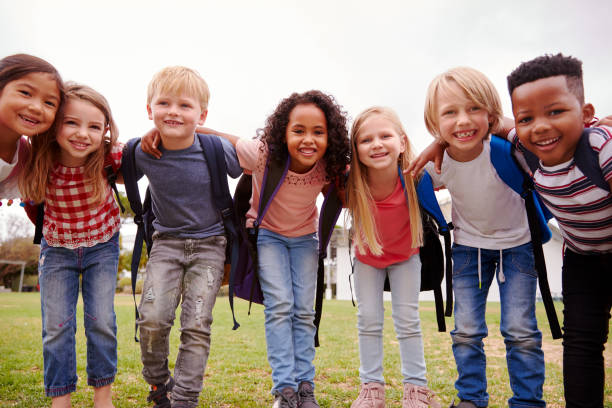Socialization has continued to be very relevant in the understanding and building of an ideal society of humankind. This presupposes that, virtually all human societies have had to grapple with Life course, which begins with conception and proceeds through old age and death in the end. Socialization, according to sociologists is a continuing process, as well as a lifelong process. What has remained very critical to the process is that; one: a biological being becomes a social being. Two: the dependent biological being (child) is equipped with necessary attributes, values, skills, and aptitude to becoming a responsible adult. Thus, the process from infancy through adulthood provides the child the ability to learn a number of things that are peculiar to the culture of the society which he or she is a member. In effect, a child is expected to conform to the norms and values of which he or she belongs; such that, his or her personality is weaved or built along the expectations of that society.
However, learning and the internalization of the society’s norms and values by a child is made possible by social interaction. That is, interaction with other members of the society he or she belongs to. The social interaction is ofcourse, facilitated by language which helps the child to communicate his or her thoughts with other members of the society. Language also helps the child to understand and appreciate the society, the world he or she belongs to. Over time, however, the child grows up to become an adult with set values, attitudes, goals, prescriptions, needs, beliefs and morals.
Sociologists have also posited that Life itself is an adaptation which requires a constant remaking and renewing of self. For example, a child below the age of three is trained or socialized with the pattern of kindergarten or nursery school. Similarly, a medical student is trained within the domain of his profession; and a newly wedded wife is trained for the home responsibilities. In the middle ages, however, the idea about childhood was never given a preference or better still, the much desired concern; not until 17th century where the idea about childhood began to gain currency.
Infact, the arts of the medial times portray adults and children mixing up without a distinct differentiation; as they do things together. Thus the idea of linking games, toys, carton, comic books etc, with children today is a comparative recent phenomenon. Similarly, the idea of children attending school; be it formal or informal rather than working in factories and mines as it were in the early eighteen century where children worked twelve to fifteen hours per day in a cotton field in New England.
Similarly, about two million American children under fifteen years were reported by National Child Labour Committee’s report who worked as farm laborers in the early 20th century. Contrastingly today, child labour is not only considered as unacceptable, but illegal. This is because of the changes that have taken place with respect to laws protecting children’s rights. However, childhood is believed to differ from one culture to another; and as well as differ with respect to time in history. The implication of this is that; childhood is socially constructed. That is, society defines what childhood is or who a child is. Traditional society, however, perceives childhood as never ending at a particular age, rather, childhood is believed to be ending with rituals or rite of passage. For example, in some African societies, children have to perform a series of rites of initiation into adult life. Infact, circumcision and genital mutilation are made compulsory during the rites of passage to adulthood. Though, this culture is fast disappearing in recent times. In most societies of the world today, people become adult at age eighteen, when a child is believed to have come of age with special rights, responsibilities and privileges. Although, not all rights and responsibilities come at a given age, some can arrive very early and some very late.
Using the British Child’s Rights and responsibility model, for example, by age 5, compulsory formal schooling begins for the child; transportation fare on trains or uses is to be paid by adults. By age 10 , a child can e convicted of a criminal offence, if it can be proven that a child has infracted upon the laws of the state. By age 12 , a child can buy a pet. By age 13 , a child can have a part time job which is subject to restrictions. By age 14 , a child can go to pub, but does not have the right to drink alcohol. By age 16 , a child can marry with their parents’ consent; a child can hold license to drive a moped; a child can have a beer or cider with restaurant meal; and can buy liquor chocolates. By age 17 , a child can hold licenses to drive most vehicles. By age 18 , a child can vote; can buy alcohol; can serve as a jury; can marry without parents’ consent. By age 21 , a child can become MP and can adopt a child. The above model is typical of British society. A comparative analysis with other societies, especially African societies reveals a different thing with respect to rights and responsibilities. The implication of this is that, values, beliefs vary across cultures, in which case, a consensus model is never feasible. Nevertheless, the United Nations, through its special agencies have developed policy framework which stands to protect children’s rights globally, in which most countries of the world are beginning to develop their child rights framework laws around. It is high time, however, that most nations of the world began to put child’s rights and responsibilities in the front burner. It is high time governments at all levels started a review of their policies for sustainable development which has embedded in it, a philosophy of inclusiveness and holistic approach to development. It is high time children began have their rights adequately provided for them; and enjoy the rights to the fullest, so that life will be meaningful to them and can live a responsible adult life.
Oyedipe V.O



























